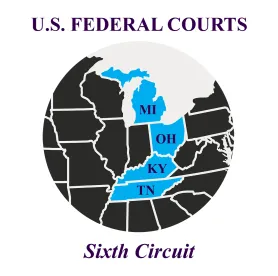It’s been almost a decade since this blog discussed the likelihood that the Sixth Circuit would accept a discretionary appeal under 18 U.S.C. §1292(b). That the section that gives a district court the discretion to certify an order for appeal if the issue involves an important question of law for which there is substantial ground for difference of opinion and where its resolution will efficiently advance the litigation. The appellate court also has discretion whether to accept review of the certified order. Section 1292(b) appeals are especially helpful in complex cases to correct early errors on questions of law that, if left until after final judgment, might otherwise require the parties to re-do years of expensive litigation.
Conventional wisdom was that district courts rarely granted certifications, and that appellate courts often rejected even those appeals. For example, one study found that between 1986 and 2000 district courts in the First Circuit granted less than half of certification motions, and that the circuit court then rejected half of the certifications. Other studies found even lower rates of success with appellate courts, on par with the low success rates for certified questions of state law. When we conducted our own study, we were surprised to find that the Sixth Circuit was far more generous than other circuits, taking around 70% of the orders that were certified by district courts between 2008 to 2010.
But we have significant success utilizing §1292(b) appeals in the Sixth Circuit and elsewhere in the past few years, causing us to wonder if things had changed. The scholarly literature appears to show that the circuit courts are not granting more interlocutory appeals than before, so this may be more a matter of skill or luck than a change in approach.
When we did our own survey of cases in the Sixth Circuit over the past couple of years, we found a significant difference—the Sixth Circuit has now been accepting an impressive 90% of petitions from orders certified by the district court. We have not seen a change in the difficulty of getting a district court to certify an order for appeal (which remains an uphill battle). So once you get a certification from the lower court, the chances of turning that certification into an interlocutory appeal in the Sixth Circuit are much better than in the past.
In the next post, we’ll explore potential reasons for this recent evolution of practice.




 />i
/>i

